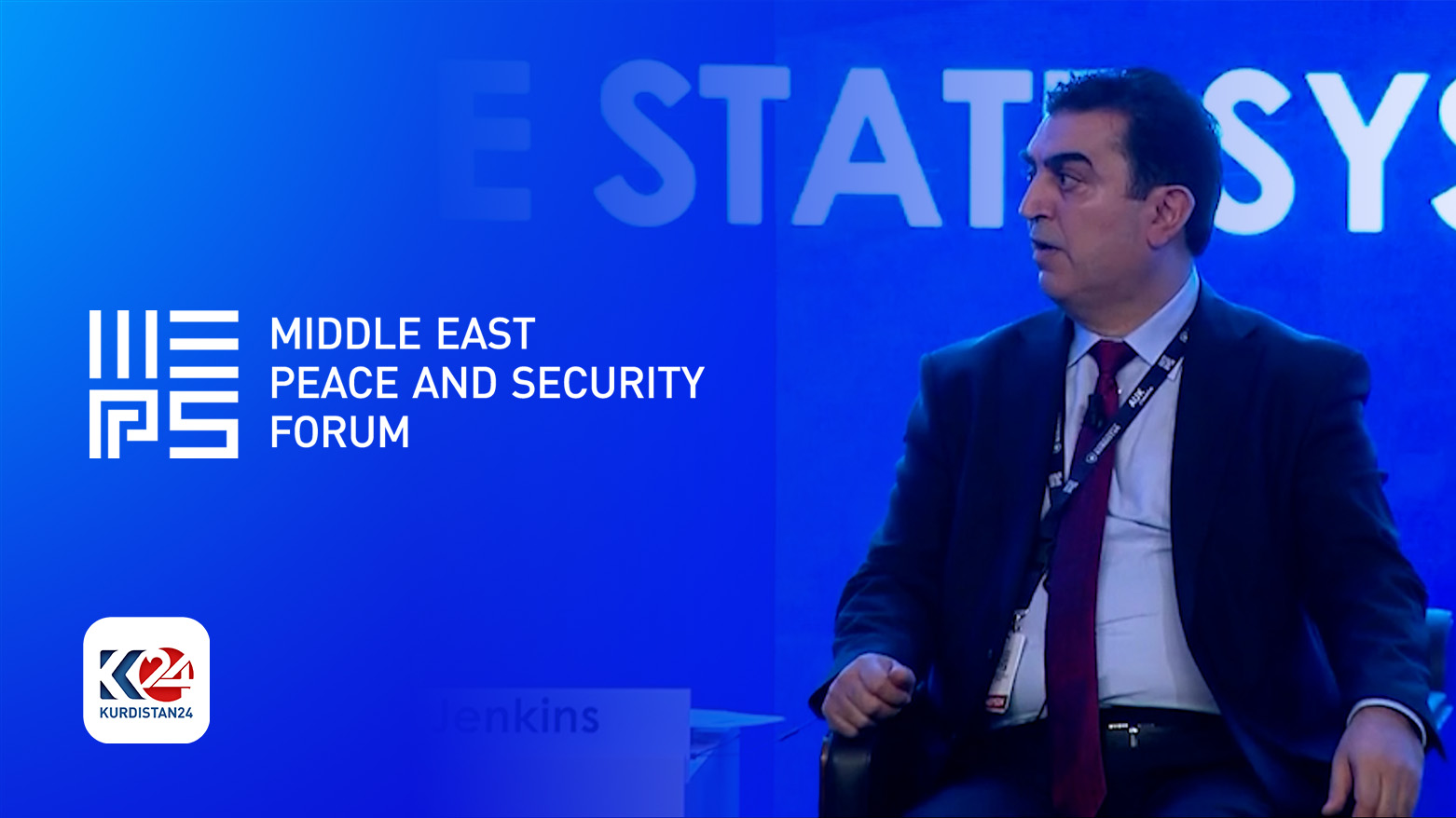Former Duhok Governor discusses state-building, power-sharing challenges at MEPS24
Atrushi's remarks traced the historical and structural challenges that have plagued Iraq’s state-building process and highlighted the critical need for adherence to constitutional principles.

Nov. 22, 2024
ERBIL (Kurdistan24) — Former Duhok Governor Farhad Atrushi delivered a thought-provoking talk during the fourth session of MEPS24, titled "State-Building, Self-Determination, and Power-Sharing: The Future of the State System in the Middle East."
Atrushi's remarks traced the historical and structural challenges that have plagued Iraq’s state-building process and highlighted the critical need for adherence to constitutional principles.
The Paradox of Sykes-Picot and Modern Borders
Atrushi opened his speech by addressing a paradox he observed in political discourse across the Middle East. He noted that while politicians and academics frequently criticize the Sykes-Picot Agreement as a colonial imposition, they also treat the resulting borders as inviolable.
"If they are not sacred, if they are being imposed by colonial powers, let’s change them," Atrushi suggested. "Let’s go back to the people and let them decide for themselves."
Failures of State-Building in Iraq’s History
Atrushi provided an incisive critique of Iraq’s state-building efforts since its establishment in the 1920s. He argued that the state system, introduced as a Western construct, ignored the region’s cultural, ethnic, and sectarian diversity.
Monarchical Period (1921–1958): Atrushi described the monarchy’s inability to forge a unified nation. He cited a historical account by Abdul Razak Al-Hasani, in which Iraq’s monarchy lamented the fragmented and uneducated nature of its population.
Republican Era (1958–2003): He characterized this period, including Saddam Hussein’s regime, as marked by failure and repression, particularly against the Kurds.
Post-2003 Era: Atrushi noted that the Kurds, despite historical grievances, voluntarily reengaged with Baghdad after the fall of Saddam Hussein to build a new federal state. He emphasized that this effort was underpinned by agreements on federalism and power-sharing principles enshrined in Iraq’s 2005 Constitution.
Constitutional Non-Implementation
Atrushi detailed the failures to implement key provisions of Iraq’s constitution, undermining federalism and power-sharing:
Militias: Article 9 forbids the creation of militias outside state control, yet this provision remains unimplemented.
Oil and Gas: Articles 111 and 112, which govern resource management and revenue sharing, have not been resolved equitably.
Disputed Territories: Article 140, which addresses the status of disputed areas between the Kurdistan Region and federal Iraq, remains unfulfilled.
Judicial Reform: The Supreme Court continues to operate under outdated laws rather than constitutional mandates.
Call for Commitment to Principles
Atrushi concluded by emphasizing the importance of implementing the constitutional principles of consensus, balance, and power-sharing. He stressed that without these, Iraq's state-building efforts would continue to falter.
The session underscored the complexities of governance in Iraq and the broader Middle East, calling for a renewed commitment to inclusive and democratic principles as the foundation for a sustainable state system.